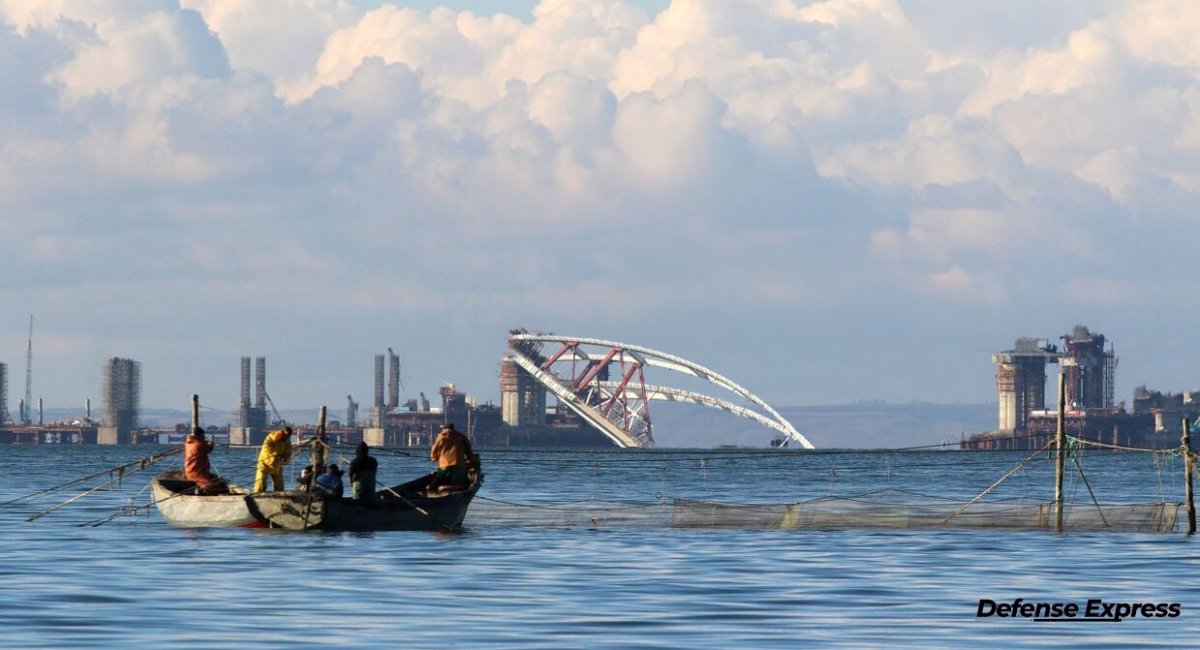
Russia realizes that the Crimean bridge will collapse and is already planning to build an underwater tunnel
Moscow is seriously considering the possibility of creating a tunnel under the Kerch Strait, which would essentially replace the bridge that is being methodically put out of commission by the Ukrainian Defense Forces.
But since Russia’s current capabilities only allow it to finance this project, not to implement it technologically, the main idea is to attract Chinese companies to build it. This is stated in the Washington Post publication, which relies on information from unnamed Ukrainian officials who handed over documents and correspondence from hacked email accounts on the Russian side (including Georgy Muradov, “Crimea’s representative” to Putin), as well as similar information obtained independently from other sources.
But the main thing is not the plans themselves, but the reasons for their emergence. And, of course, the Kremlin is absolutely unsure that the Crimean bridge will stand. Otherwise, such a project would not have been considered at all. The estimated cost of creating an underground tunnel under the Kerch Strait, according to the publication’s estimates, will cost from $5 billion.
The Femarnbelt Tunnel between Denmark and Germany, which is currently under construction, has a budget of $8.7 billion. Also, this project may well be an indicator of the timeframe for creating a tunnel under the Kerch Strait. Its construction began in 2021 and is scheduled to be completed in 2029, despite the fact that the project’s financing was approved back in 2015.
And this is despite the fact that, according to various sources, Russia spent from 3.6 to 5 billion dollars on the creation of the Crimean bridge, which was called the construction of the century in Russia.

Thus, Russia’s plans to build the tunnel are a long-term perspective. That is, either Moscow thinks that the war will last for another ten years. Or the existing damage is so severe that it cannot be repaired and the bridge cannot be fully operated. Either assessing the consequences of repeated attacks or simply natural processes in the long term will have a similar effect.
There are no other conditions for discussing the project, the cost of which exceeds the construction of the Crimean bridge. Moreover, the creation of such a large-scale project under the threat of possible attacks from Ukraine reduces all possible preparedness options to the post-war perspective.
And this already indicates another more than important aspect of what the Kremlin thinks about the status of the occupied territories in this perspective. Because this means that, according to Moscow, they will not have a land route along the Azov Sea, let alone a corridor to Moldova and Romania through Odesa, as was planned before the invasion.
Otherwise, there is simply no point in spending really huge amounts of money. Especially in the context of the transition of the sanctioned Russian economy to a military mode. But the Kremlin still expects to retain control over Crimea.
It is also important that the construction of the tunnel under the Kerch Strait relies exclusively on cooperation with China, more specifically with the state-owned China Railway Construction Corporation (CRCC), which is one of the country’s largest construction companies. By the way, the company is already implementing a number of infrastructure projects in Russia: it was building the metro in Moscow and is completing one of the sections of the M12 Moscow-Kazan highway, and in 2022 it submitted an initiative to build a ring road in Vladivostok (estimated cost of about $0.9 billion).
But, as stated in the correspondence, the CRCC is ready to participate only in case of complete confidentiality and participation under the guise of another legal entity, which is explained by Beijing’s non-recognition of the annexation of Crimea. But the confidentiality condition has already been violated and, at the very least, may already lead to complications in negotiations.

